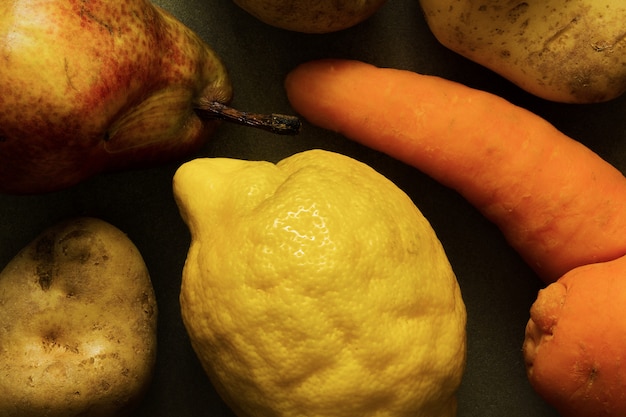

Imperfect Produce also provides farmers with extra revenue. Simon said customers aren’t the only ones who benefit from the model. A seven-to-nine-pound box of fruits and vegetables from Imperfect Produce is $11 to $13 the organic option is $15 to $17, and Supplemental Nutrition Assistance Program (SNAP) recipients are eligible for a reduced-cost box. Imperfect Produce partners with 200 farms around the country, including roughly 20 in Maryland and Virginia, and takes their oversized potatoes and knobby carrots back to its distribution centers, where they get boxed up and delivered to subscribers.Ĭustomers end up paying about 30 percent less than they would if they picked out a similar haul at the grocery store, Simon said. “The big-picture impacts of food waste are enormous,” Simon said. Project Drawdown lists reducing food waste as the third most important thing humans can do to reverse global warming, behind decreasing refrigerants and increasing wind energy. Food and Agriculture Organization, almost half of all fruits, vegetables, roots and tubers (potatoes, yams) produced are wasted - and all of those tossed tomatoes and overlooked oranges have environmental implications.Īccording to the United States Department of Agriculture, food waste is the single largest component going into landfills, which are the third largest source of methane in the U.S. “The most common reasons … the size, scarring on the outside, and also just being a little bit misshapen sometimes.”Īccording to the U.N. “Twenty billion pounds of perfectly good produce getting wasted every year on farms, in large part because it’s too ugly for the grocery store,” Simon said. With Imperfect Produce, Simon is tackling food waste at the farm level. Now, there are 230 chapters throughout 44 states, and more than 3 million pounds of food have been recovered. While there, he co-founded Food Recovery Network, which helps school campuses divert food that would otherwise end up in the trash to organizations working to fight hunger.

Simon, a Montgomery County, Maryland native, began his work in food waste as a student at the University of Maryland. “So this produce tastes exactly like regular produce - it’s the same nutritional value, it’s just as healthy for you, it’s just as good on the inside - it just looks a little bit funny on the outside.” “Produce grows in all different shapes and sizes,” said Ben Simon, CEO and co-founder of Imperfect Produce, which launched about three years ago and serves 15 city markets, including Los Angeles, Chicago and Seattle. A burger that looks like meat, cooks like meat, but isn’t meat.‘I wanted to do more for people than just pray’: Pastor blends faith, farms to end food insecurity in black churches.Reduce food waste? There’s an app for that.Business & Finance Click to expand menu.


 0 kommentar(er)
0 kommentar(er)
